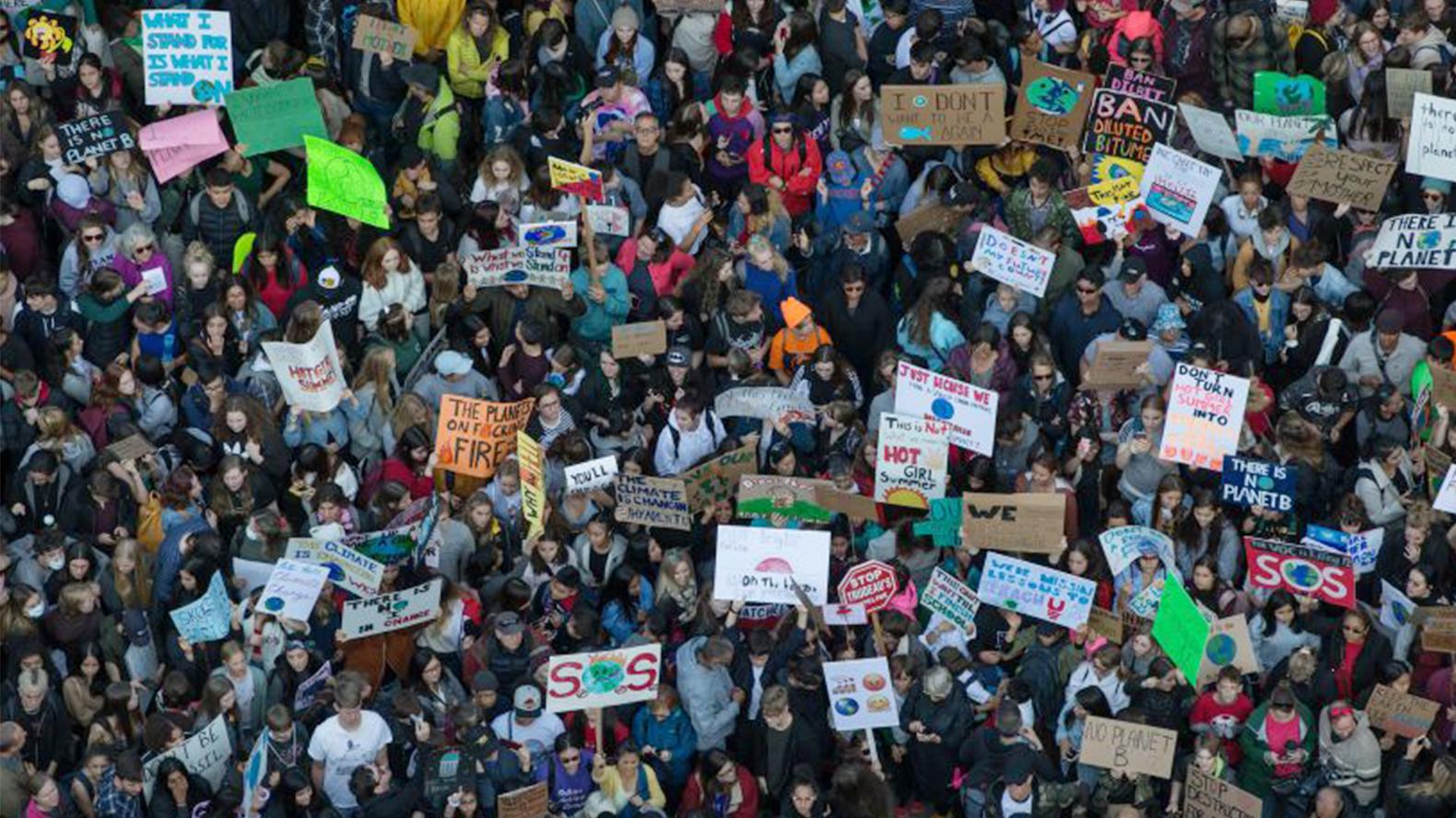
This article by Tiffany Crawford originally appeared in the Vancouver Sun on December 6, 2019.
The University of B.C. has joined a growing list of schools, communities and countries around the world in declaring a climate emergency.
UBC president Santa Ono said the UBC board of governors endorsed the declaration on Thursday, and he thanked students and staff for their activism in pushing UBC to act.
A least one climate activist group on campus wasn’t happy with the announcement, and is calling for a firmer commitment to move away from fossil fuels. The UBC Extinction Rebellion group is planning a hunger strike in January if UBC doesn’t meet their demands.
In declaring an emergency, UBC acknowledges “the climate crisis is posing and will continue to pose extensive and disastrous threats to peoples’ lives and livelihoods both locally and globally, contributing to famine, migration, and disease worldwide, including impact on individual physical and mental well-being.”
UBC said it will make decisions that will reduce emissions and shift away from fossil fuels to alternative energy sources.
This decision, UBC says, is based on the best available science laid out by the Intergovernmental Panel on Climate Change, the UN Production Gap Report and the Paris Agreement.
UBC also recognizes that addressing the climate crisis is “critical to the university’s key functions of research, learning and engagement as UBC strives to prepare students for their futures and conduct leading research on pressing societal issues.”
Ono said he is establishing a climate emergency community process to help manage a transition from fossil fuels. He said it will be essential that this process leads to transparency and accountability, connects to the school’s Indigenous strategic plan and inclusion plan, and commits to charting a globally ambitious future for climate action on campus. The process will include, among other things, establishing a climate emergency committee, and a resource website for community members to submit ideas and provide updates on progress.
Ono says the committee will make a report by spring with recommendations for action. The report will be submitted to the new Sustainability Committee of the UBC Board of Governors for consideration.
UBC’s announcement was met with skepticism by the UBC chapter of Extinction Rebellion. The climate activist group acknowledged that the board voted to move 22 per cent of the funds from UBC’s endowment, or $380 million, to a fossil-free fund and explore options to move to a full divestment.
The UBC board also removed a condition from the original motion which stated that divestment would only occur if it is shown not to hurt the financial performance of the endowment.
But Extinction Rebellion said this isn’t enough and want the university to commit to a withdrawal from all fossil fuel investments.
The group is threatening a hunger strike by students — to begin Jan. 6, the first day of term — if full divestment is not promised by the end of the year.
“The climate and ecological crisis takes precedence over our individual needs. This January, we will be putting our healthy bodies on the line. We will enact starvation so that this institution can visualize the real life consequences of its failure to act,” said Laura Sullivan, a student organizer at Extinction Rebellion UBC. “As of today, UBC remains complicit in this catastrophe. UBC has 27 days to commit to our demands and avoid risks to their students today and the next seven generations to come.”
UBC treasurer Yale Loh said he has requested reviews of full divestment be presented in “as expeditious a manner as possible” but it will take time. UBC’s investment in the fossil fuel industry, which includes oil, gas, and coal, is two per cent, or $43 million, of UBC’s portfolio, Loh said on Friday. He said UBC has asked for a legal and financial analysis of divesting from oil and gas by March 31.
He applauded the passion of the Extinction Rebellion students but urged them to consider another method of protest. “We are very concerned about this action and about their safety,” he said.
He said the board will continue outreach to the group to discuss other options.
The university must consider the penalties for removing investments, and the legal ramifications, and at the same time investigate more sustainable approaches, he said.
“This is very much a journey for us,” he said, adding that the university is on track to reduce emissions by 67 per cent by 2021.
Laura Chen, a UBC student and member of Ono’s climate advisory group, said students from UBCC350, Climate Hub, and the Social Justice Centre, drafted the climate strike open letter that 1,600 students and faculty signed calling for UBC to declare a climate emergency and divest. After this, members from the same three groups formed the climate advisory group for Ono and drafted the climate emergency declaration.
She said she understands the frustration and demands of Extinction Rebellion, but added that it’s important to recognize how hard the students have worked to get the board to make these changes, and to hear from the UBC community to ensure there is justice and equity for all members of the community moving forward.
“People are waking up to the climate crisis, and we are glad the board is committing to exploring full divestment. This is a really exciting development,” said Chen.